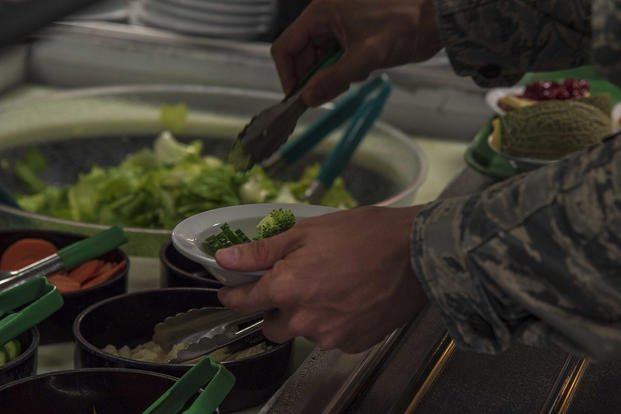For most of us, gaining weight when you are 40 years old or over can be as easy as looking at food. Losing it, however, is much tougher than it was in our 20s.
The metabolism in men and women decreases after age 40; some experience it even earlier. We can fight the effects of aging, though, with a steady daily exercise plan, stretching, de-stressing and eating foods rich in protein, carbs, fats, vitamins and minerals.
Here is an email from a former Army soldier who still gets after it but constantly battles the bulge.
Stew, I am now 55, not much older than you, I understand, and for the past 10 years, I have been slowly gaining weight, even with a good diet, regular exercise (5-6 hours a week) and other outdoor activities. I should be thankful that I am still this active, but just cannot shake this extra 10-15 pounds that I have gained since I was 45 years old. Any recommendations? Are you feeling my pain yet? Jim
Thanks, Jim. Reading this email is like looking in the mirror. I know exactly what you are going through. In fact, I even compound my weight-gain issue since I like to lift and gain mass for a strength cycle during the winter. For the last few years, I have not been able to shake that extra 10-15 pounds of muscle/bulk gained in the winter during our run cycle in the spring. This makes running and exercises, such as pull-ups, harder.
Below are tips to help you get the weight moving in the other direction again:

Make a List of Everything You Eat and Drink
That needs to be put on paper so you can see it and do the math. Add the calories/portion sizes of every meal, snack and drink. Also keep track of water intake. In fact, add more water (typically).
This was life-changing. I realized I like to get a spoonful of peanut butter as a snack throughout the day. This is not an "unhealthy" snack but adds up the calories. A few days a week, I added 800 calories to my day with a few spoonfuls, just because it was there. That was my main contributor to maintaining or slowly gaining a pound a month. No more peanut butter in the house, and I dropped five pounds in two weeks.
Keep Up Your Activity
Like you said, we are lucky to be this active and enjoy exercising daily. Keep this up, but play around with new training ideas and figure out roughly how many calories you are burning in a workout session. You also can add in your other outdoor activities, such as walking a dog, yard work or other active hobbies.
I realized I needed to up my game a bit and add a second activity session in my day. As an early-bird exerciser, I am great with a higher metabolism in the morning, but found my afternoons were sluggish if I ate a big lunch, followed by little activity. Now, a quick walk/jog of the dogs, a swim for 20 minutes or bike ride helps me after a smaller meal to stay awake, be productive at work and burn more calories during the day.
Either or Both
Doing either one of the above or both will make a big difference in how you understand the calories you are taking in and the calories you are burning. I hate to say it is as simple as "calories in/calories out," but it is the major factor in successful weight loss. Sure, you should avoid refined foods, processed sugars and empty calories, and eat foods high in nutrients and fiber from all macronutrients (proteins, good carbs -- fruits/vegetables and fats). See list of options.
Some Foods Should Be Avoided, and All Need to Be Controlled
As you age, outworking your diet is a thing in the past. Your ability to consume more calories is easier, but the ability to burn them off at higher rates is more difficult. I have found that it came down to more portion control for me than what I was eating. I do not eat sugar snacks, drink sodas or sugary drinks. However, I will eat a second portion of chicken, steak, fish, peanut butter and other nuts.
These are high-calorie foods that are great for the body, but controlling that urge to eat more has been the ticket to avoid gaining five pounds a year. If you are still hungry after dinner, and there is still more food just sitting there, save it for tomorrow. Try to top it off with a salad or extra glass of water.
Find out where the leaks are in your diet by keeping track of food coming in and see whether you can add something to your exercise plan that burns more calories (higher intensity, duration, resistance training, etc.). Avoid sugar and focus on foods that keep you full that are higher in fiber and vitamin-rich nutrients, as listed in the links above.
Good luck. Keep working.
Stew Smith is a former Navy SEAL and fitness author certified as a Strength and Conditioning Specialist (CSCS) with the National Strength and Conditioning Association. Visit his Fitness eBook store if you're looking to start a workout program to create a healthy lifestyle. Send your fitness questions to stew@stewsmith.com.
Want to Learn More About Military Life?
Whether you're thinking of joining the military, looking for fitness and basic training tips, or keeping up with military life and benefits, Military.com has you covered. Subscribe to Military.com to have military news, updates and resources delivered directly to your inbox.



















